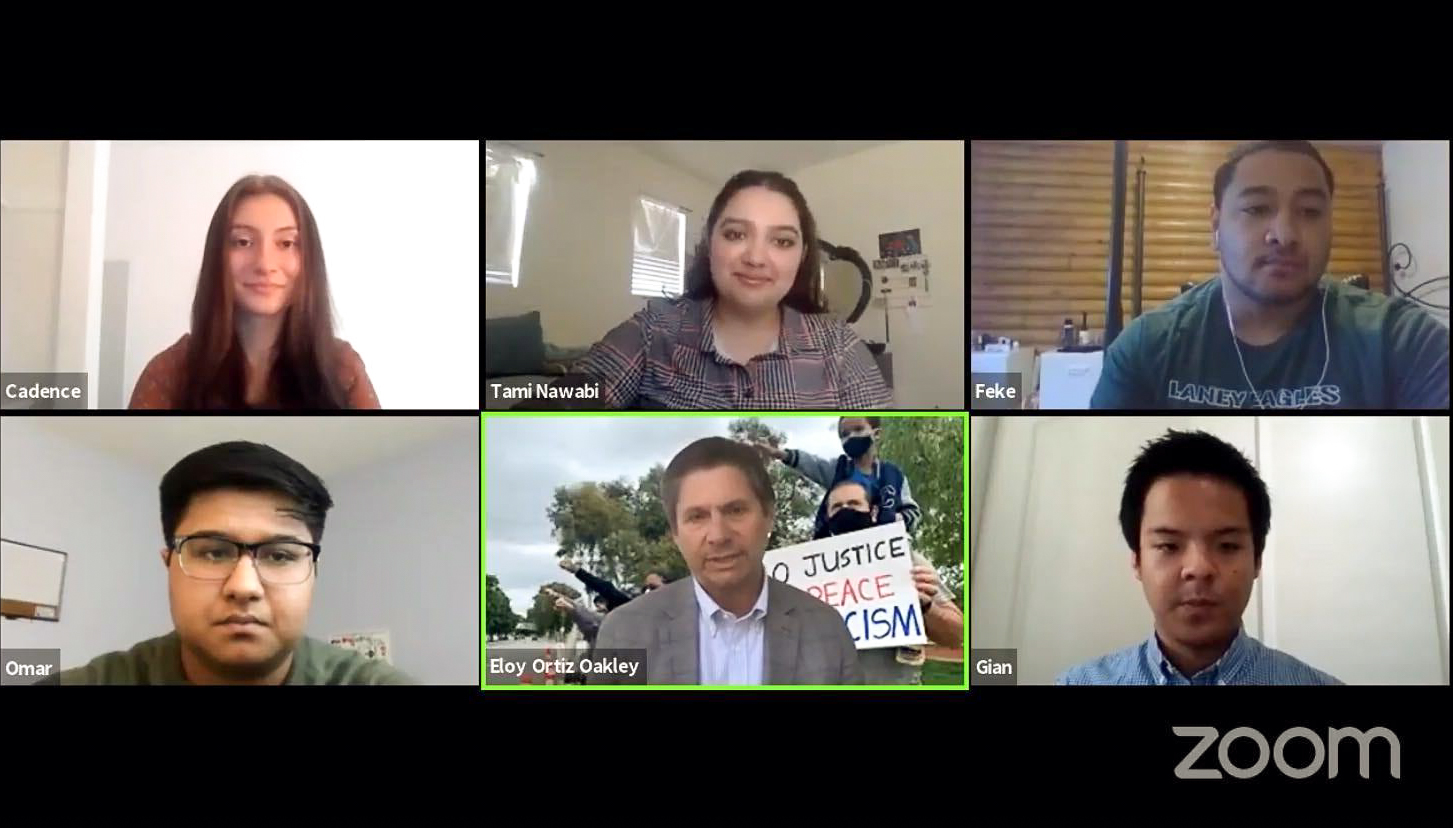California Community College Chancellor Eloy Ortiz Oakley answered students’ questions about the upcoming fall semester in a virtual town hall on Tuesday.
“There is tremendous uncertainty, and many of our students have lost jobs and have family members that lost jobs,” Oakley said. “Given where we are at in this environment, there is nothing better to have in your pocket than your education.”
One student asked if community colleges should expect limited resources and cuts to courses, similar to what happened in the 2008 recession. Oakley said he doesn’t expect the “disaster in 2008 to replay” this upcoming school year.
While it might be difficult to find courses, students have options through their college and course exchanges, according to Oakley. He said they have invested in “Cranium Café” to help with communication. The meeting platform allows students to set up phone calls and Zoom appointments with faculty and counselors.
Taminya Nawabi, a second year student at San Joaquin Delta College, asked Chancellor Oakley how he would combat professors imposing “unreasonable expectations” on students.
Nawabi explained how instructors at the college imposed intensified coursework when instructors suspected cheating on online courses, which caused students to drop classes to save their grades. She said it gives her anxiety about the upcoming fall semester.
To address this anxiety, Oakley proposed students start locally by voicing their concerns at their college’s Academic Senate. In addition to that, Oakley is committed to working with faculty leadership and looking at Title V regulations that help students make progress.
“We are not in front of each other… and expressing our opinions in ways we normally do,” Oakley said. “But now we have to take more effort in getting that message across and I encourage students to do that. Your voice right now is critical because this is about your future.”
As courses moved online, low-income students who relied on free internet access from college libraries had to find new ways to complete their courses. Community colleges are providing resources such as Chromebooks and internet hotspots in college parking lots for students without internet access at home, according to Oakley.
Feke Tutu’ila from Laney College expressed concerns about language barriers students may face when English is not their first language. Tutu’ila asked how Oakley will ensure online coursework is still accessible to them.
Oakley advised one of the changes to be made is having more faculty of color.
“The more we can diversify our faculty and our staff, including administrators, the greater the likelihood that there are people on campus who understand the culture and language of individuals who come from other parts of the world,” Oakley said.
In addition, community colleges are “short-changed” by the federal government in terms of funding, even though California Community Colleges serve one-quarter of all community college students in the nation, according to Oakley.
One of these “short changes” is the lack of resources diverted to the disabled student community, according to Cadence Dobias, a student at Grossmont College.
Dobias brought attention to how instructors are unable to support all their students’ needs.
Oakley said he is ensuring that colleges understand how to access resources such as closed captioning to make instructional content accessible to all students.
“I wish that I could say that we were getting close to being able to serve all the needs but we are not and that’s an issue of advocacy that we have to keep working with our disabled student community and continue to press Congress and our Legislature,” Oakley said. “It is a source of pride that we serve the top 100% of students and we want to be accessible to every one of those students.”




